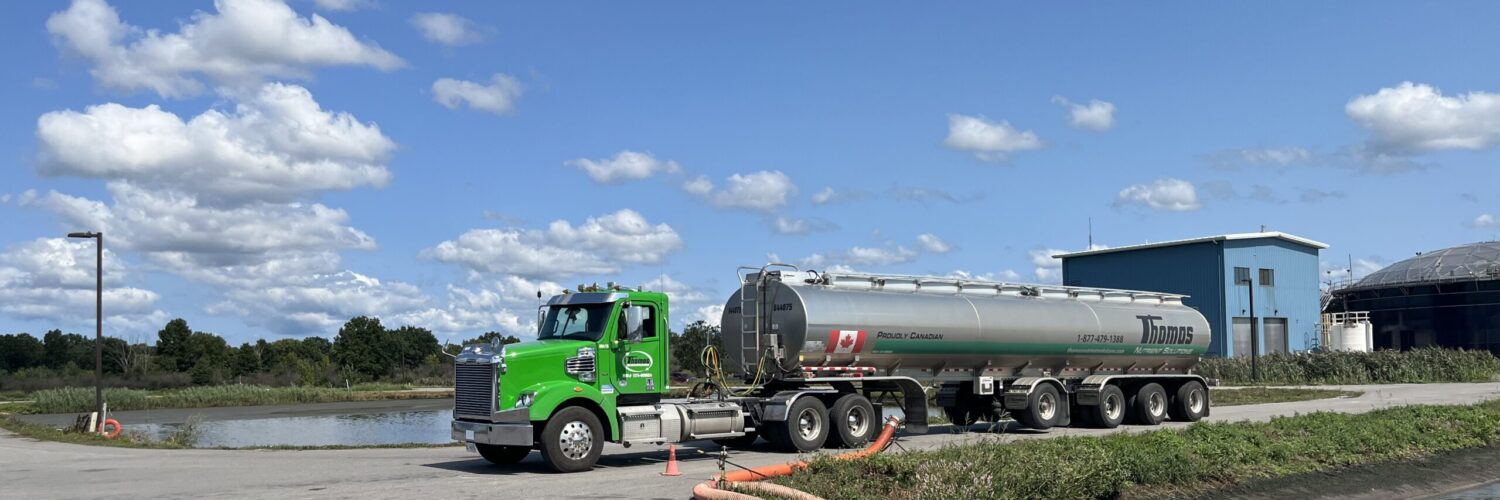Crops require essential nutrients such as nitrogen and phosphorous which can be derived from biosolids. Organic matter found in biosolids enhances moisture retention, soil structure, permeability, reduces wind and water erosion, and enhances the uptake of plant nutrients. It also improves soil fertility, offsetting the need for commercial fertilizers.
Biosolids need to be sampled and analysed at least twice a week during the land application season. They are tested for nitrogen and phosphorus, as well as the eleven heavy metals of concern to agriculture, and bacteria such as E. coli. Biosolids must also be screened for other contaminants, such as by-products from pharmaceutical and personal care products.
In Canada, the United States and Europe, biosolids have been used on agricultural land for more than 30 years. Farmlands that have been using biosolids for recycling nutrients in the environment have reaped many benefits both economically and environmentally. It’s basically free for farmers, unlike costly commercial fertilizers. Commercial fertilizer production is also resource-intensive and contributes to greenhouse gas emissions, so the application of biosolids on agricultural land is an environmentally safe and sound practice.
There are numerous nutrients in biosolids that make it ideal as a crop fertilizer for agriculture. Nitrogen is found in ammonium, nitrate and organic forms. Care must be taken to ensure that the concentration of ammonium and nitrite nitrogen in biosolids be limited to protect groundwater, crops, and soil. The application rate should not exceed 135 kg of nitrogen/ha over a five-year period for crops or a four-year period for sod. Soil test results, crop requirements, and contaminant loadings will determine the nitrogen application rate for other wastes. Regular analysis should be done on the ammonium plus nitrate nitrogen concentrations of waste materials and anaerobically digested sewage biosolids. A nitrogen concentration within 25% of the actual concentration is an acceptable level which can be achieved through frequent analysis. Aerobically digested sewage sludge is noted to have only low levels of ammonium plus nitrate nitrogen. Phosphorus levels in sewage biosolids must be determined because only around 40% of the applied phosphorus is consumed by plants. Potassium is usually in very low concentrations in biosolids. Other forms of waste need to be evaluated for potassium levels and application will depend on soil conditions, crop needs, and contaminant capacity.
Other macro and micro-nutrients may be present in waste materials and further investigation through soil sampling must be done. Crop requirements should also be identified prior to infusing micronutrient-rich waste materials.
Careful analysis must be undertaken to ensure that heavy metals present in biosolids are kept at acceptable levels as per regulations. Test for metals such as arsenic, cadmium, cobalt, chromium, copper, mercury, molybdenum, nickel, lead, selenium, and zinc. Guidelines have been implemented to restrict a number of heavy metals in the soil. Complying with the adequate ratios of biosolids with heavy metals will ensure that the concentrations of these metals will not degrade the quality of the arable land in the long term.
The type of crops that can benefit from biosolids include field corn, hay, pasture and commercial sod. Cereal crops also benefit from the application of nitrogen-rich sludge. Perennial legumes and soybeans may not need added nitrogen but will thrive on the phosphorus and organic content of biosolids. For trees and grapes, biosolids are usually applied in the late fall. It is important to monitor the nitrogen application to prevent poor fruit quality, winter injury, or delayed hardening of trees and vines. Caution should be taken when applying biosolids to green leafy vegetables since they tend to absorb higher levels of heavy metals and may pose risks to human health. Tobacco, for example, accumulates high Cd concentrations which make biosolid use inadvisable. It is recommended to use biosolids on grain and forage crops instead.
If you are a municipality in Ontario and in need of a biosolids management solution, please feel free to contact us on 1 (877) 479-1388.
Sources:
United States Environmental Protection Agency
www.biosolids.com

